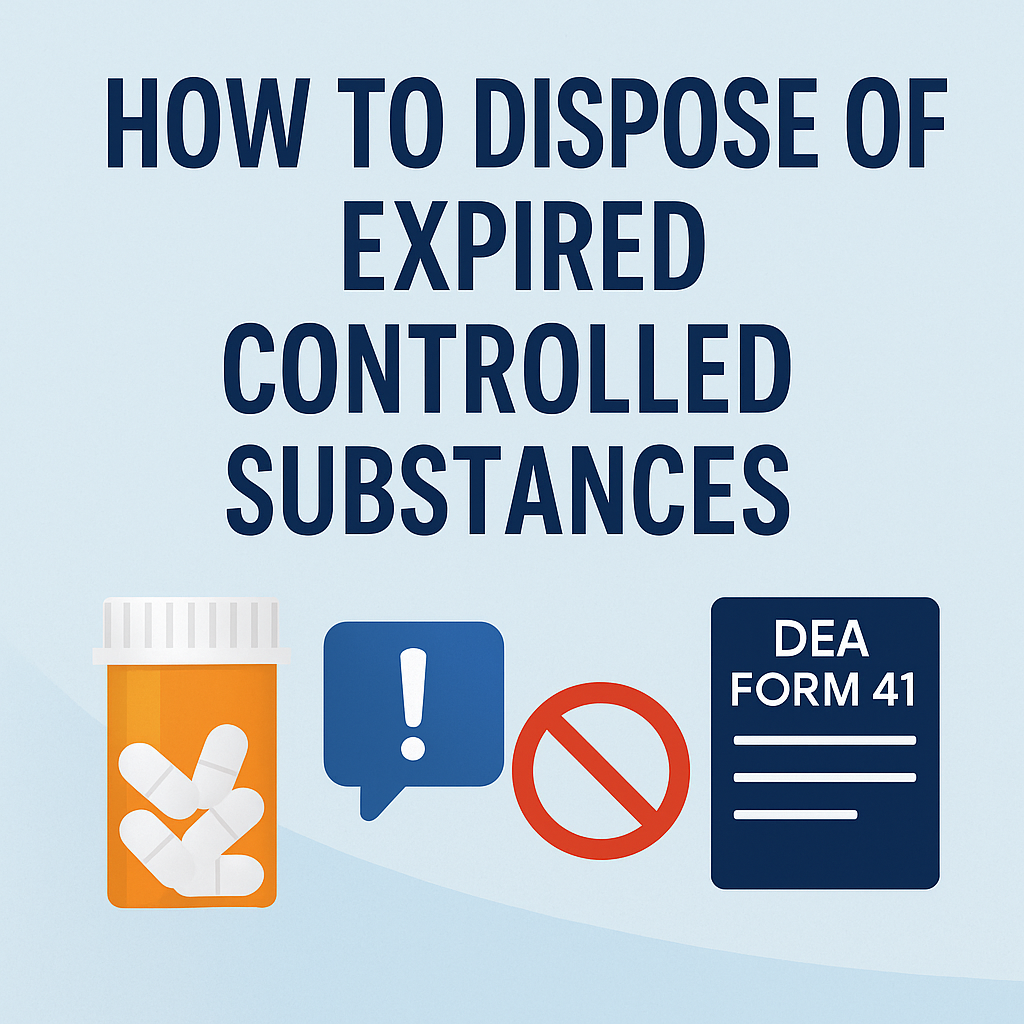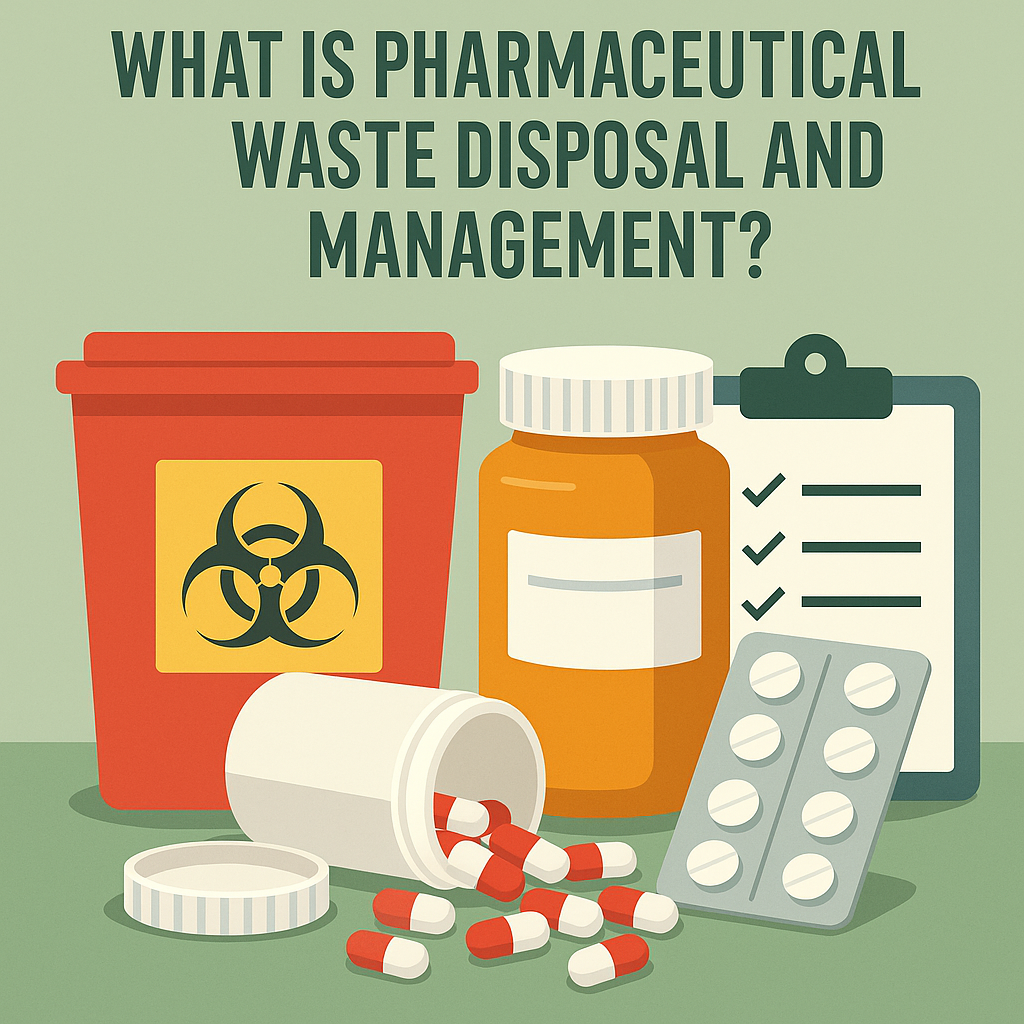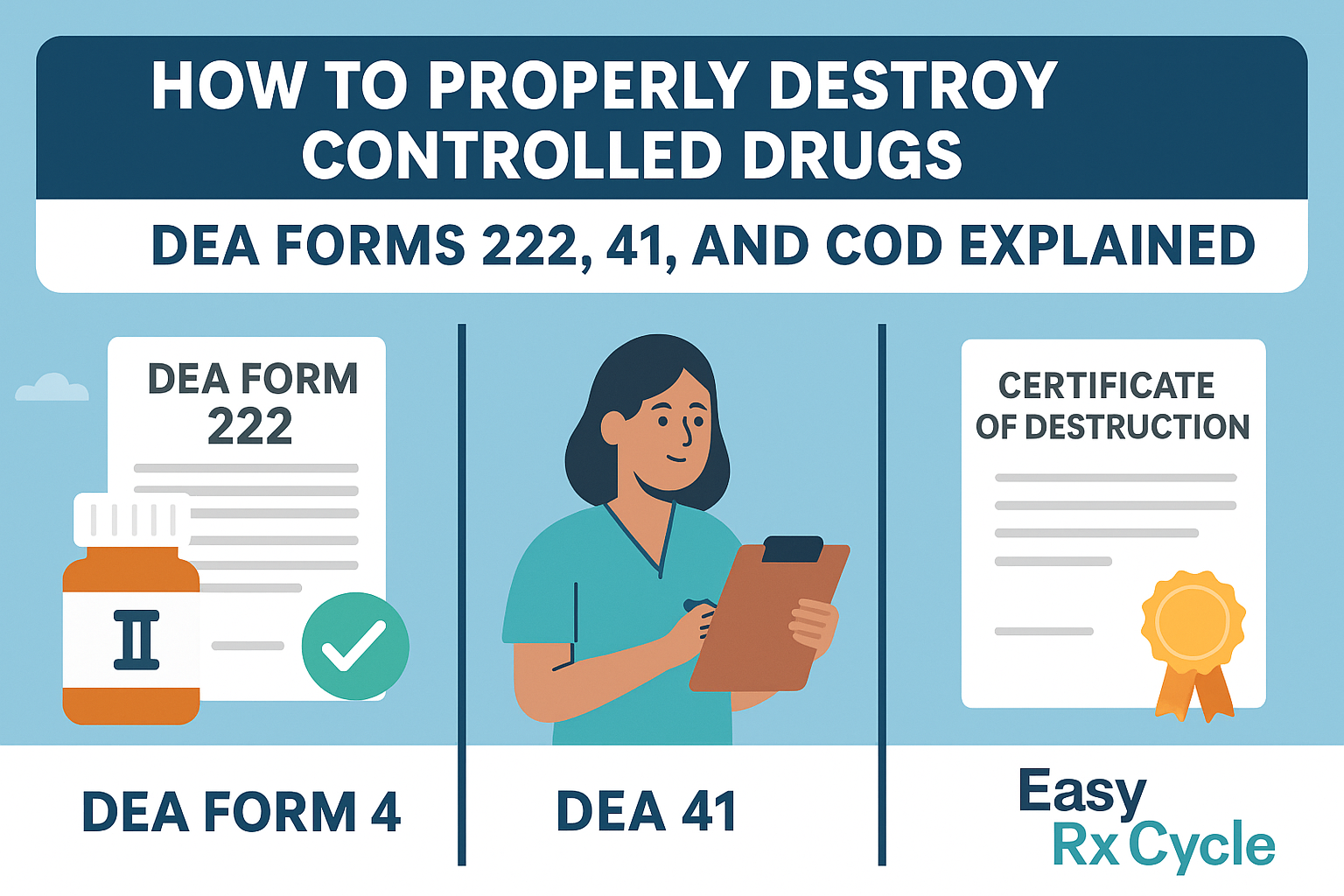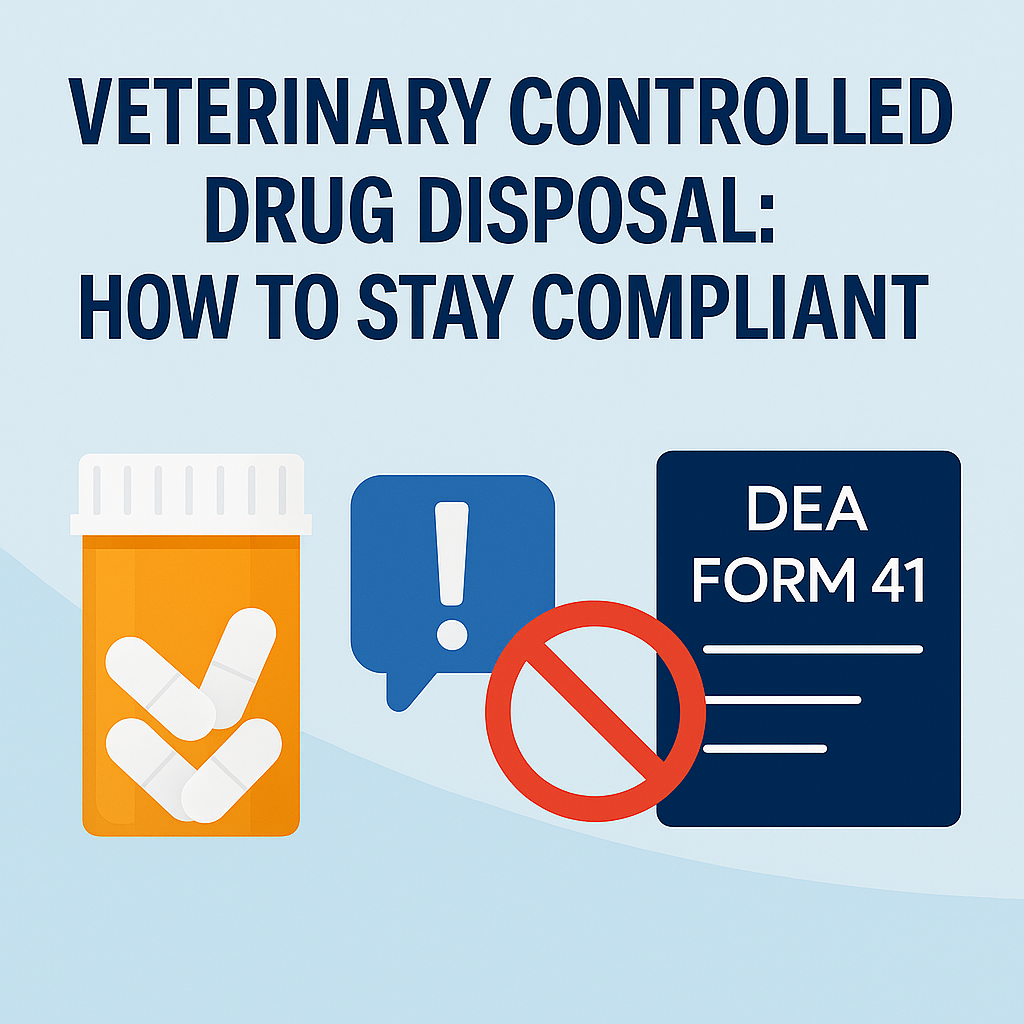Pharmaceutical Waste Disposal & Management Guide for Healthcare Facilities
What Is Pharmaceutical Waste Disposal and Management? A Full Guide for Southeast Healthcare Facilities and Businesses Introduction Every healthcare...
4 min read
William Doxey
:
May 24, 2025 5:32:44 PM

Proper drug disposal isn't just a best practice—it’s the law. If you work in a hospital, pharmacy, dental office, or veterinary clinic, it’s your responsibility to safely dispose of unused or expired medications. Controlled substances, in particular, come with strict rules from both state and federal regulators.
This guide breaks down the essentials of controlled substance waste management in a clear, simple way. You'll learn about the different drug schedules, why proper disposal matters, how to set up your own program, and what mistakes to avoid.
Controlled substances are drugs that the Drug Enforcement Administration (DEA) monitors because they can be addictive or misused. These drugs are divided into five categories, or schedules, based on their abuse potential and medical use.
To see the full list, visit the DEA’s Drug Scheduling page.
Federal laws, including the Controlled Substances Act, require DEA registrants to follow strict guidelines for handling and disposal of these drugs. Failure to do so can result in large fines or even criminal charges.
If unused drugs are thrown in the trash or flushed, they can end up in the wrong hands—or in our water supply. This creates serious health and safety risks.
The Environmental Protection Agency (EPA) has warned that flushing drugs or tossing them into regular medical waste (like sharps containers) can damage ecosystems and poison wildlife.
Check your records or packaging to find the drug name and determine whether it’s a Schedule II or another schedule drug. You can confirm this using:
Don’t mix them with:
Instead, use a DEA-compliant, double-locked storage container.
These companies are registered with the DEA and specialize in pharmaceutical waste. They handle pickup and logistics, destruction, and documentation.
These are good for small facilities like dental offices or outpatient clinics. You’ll receive:
Only allowed if approved by the DEA under 21 CFR Part 1317. You must ensure the drug is completely destroyed and non-retrievable.
The DEA sponsors National Take Back Day events where you can drop off expired medications safely. Check the DEA website for event info.
A strong internal policy helps protect your staff, patients, and facility. It should include:
Outline which departments and team members handle controlled substances.
Store waste in locked containers. Log every time a drug is placed or removed.
Include steps like:
Do monthly reviews comparing what’s been disposed of to what was purchased. This helps catch any diversion early.
Use automated dispensing cabinets with waste tracking. Assign a pharmacist or compliance officer to oversee the process. Audit weekly.
Disposal must happen within 3 business days of medication discontinuation.
DEA registrants must follow the same protocols as human health facilities.
Frequently deal with Schedule II drugs. Use mail-back systems and maintain detailed logs.
Should keep separate bins for controlled waste and require signatures for every disposal.
Follow DEA research guidelines and work with your Environmental Health & Safety (EH&S) team for destruction protocols.
Not following DEA rules can lead to serious trouble:
Many facilities have been fined for improperly throwing away controlled substance wastage in sharps containers or red bags. Always separate and log your waste properly.
All staff involved in drug handling and disposal should be trained annually. Topics should include:
Catch these mistakes early with regular internal audits.
If you're located in Arkansas or in the United States, Easy Rx Cycle can help you build a safe, compliant solution for disposal of controlled substance waste.
We offer:
Contact us today to request a compliant plan for your healthcare facility.

What Is Pharmaceutical Waste Disposal and Management? A Full Guide for Southeast Healthcare Facilities and Businesses Introduction Every healthcare...

Controlled Drug Destruction: DEA Forms 222, 41, and Certificates of Destruction (COD)

How to Dispose of Controlled Drugs for Hospice Care Hospice care providers routinely manage controlled substances to ensure comfort and quality of...